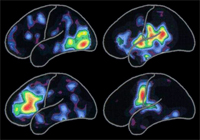Mirabilis
Member
- Location
- South Florida
My mother is nearly 80 years old. Since last year, I have noticed little things like, she will tell you an anecdote and not even 5 minutes later she will tell it to you again. Then the following day she will repeat it like it is the first time. Is this Dementia? Alzheimer's? I can't tell.
I used to argue with her thinking that she was lying about things until I realized she forgets things. I asked her to take the word test (you give her a list of 12 items, wait for 10 minutes then ask her to list the items) and she did not remember any item on the list.
She forgets things so much that she is now worried about it but we are not sure how to approach seeing a physician. Does she ask to be referred to a Specialist? or is this the inevitable? Any advice on this from your experience will help.
I used to argue with her thinking that she was lying about things until I realized she forgets things. I asked her to take the word test (you give her a list of 12 items, wait for 10 minutes then ask her to list the items) and she did not remember any item on the list.
She forgets things so much that she is now worried about it but we are not sure how to approach seeing a physician. Does she ask to be referred to a Specialist? or is this the inevitable? Any advice on this from your experience will help.





